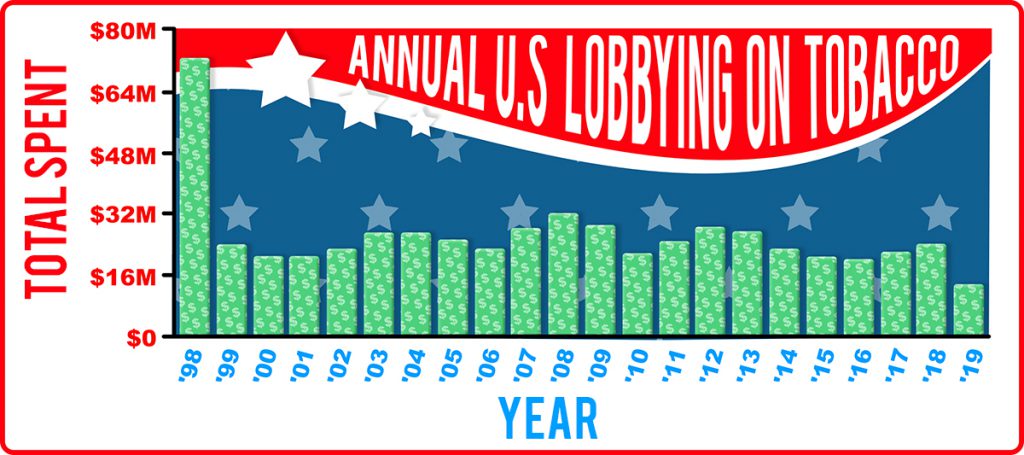Who Is Really Behind The Attack On Vaping

Vaping has been on the receiving end of a brutal bashing recently, with news reports stating that there are now at least 18 deaths attributed to ‘inhaling e-cigarettes’. Consequently, as things stand, Trump is trying to push through a nationwide flavour ban, Massachettus has temporarily issued a statewide ban on e-cigarettes, whilst the widely expected flavour bans in the states of New York, Rhode Island and Washington are in the pipelines. As well as this, India have put a blanket ban on vaping altogether, resulting in a damning condemnation of vaping worldwide. All of this is down to the media and easily swayed governments of course, who are overwhelmingly rejecting a scientifically-proven safer alternative to smoking.
Across the Atlantic here in the UK, big public health organisations have come under severe pressure to revise their pro-vaping stance, particularly the widely-quoted PHE‘s (Public Health England) ‘95% safer than smoking’ statistic. The response has been mildly positive and unchanged, yet it hasn’t disheartened the British media who have joined their US counterparts in scaremongering the wider public. There are brief mentions that the vast majority of victims of the lung disease outbreak vaped bootleg THC cartridges and toxic homebrews, yet the bulk of reports blame the industry rather than vaping illicit drugs.
All of this is of course happening whilst big tobacco companies remain completely unchallenged or unscathed, despite over 7 million deaths worldwide each year due to smoking (which is expected to rise to 8 million by 2030). We take a look at the role of tobacco companies in gaining media and political influence to achieve results, examine the MSA (Master’s Settlement Agreement) and ask the question, just why is a viable substitute for smoking being attacked so heavily?
An International Killer
Since the ’50s, smoking has been widely known to cause fatal diseases such as lung cancer, heart disease and COPD (Chronic Obstructive Pulmonary Disease) to name but a few. Smoking costs the US economy an estimated $300 billion a year, as well as burdening the NHS with a staggering £30.1 million each year in healthcare-related costs.
Smoking remains the most preventable cause of death worldwide by a longshot, yet for some reason it seems tobacco gets let off the hook almost nonchalantly. In the UK, there’s a ban on advertising as well as the regulation of standardised packaging and warning imagery, yet in the US tobacco companies spent a combined $9.36 billion on promotion and advertising in 2017. As well as this, in 2019 US states will collect a record $27.3 billion from taxes and the MSA, this is primarily due to increased taxes courtesy of falling tobacco sales. A mere 2.4% of this revenue will be spent on programs to stop young people from smoking and help current smokers quit.
Follow The Money
One of the many reasons as to why tobacco remains the untouchable powerhouse it has been, is the fact that it’s a recession-proof product, as evidenced in our recent blog post. This is of course coupled with the aforementioned MSA (Master’s Settlement Agreement), an arrangement that was agreed upon back in 1998, stating that over a 25 year period the 4 big US tobacco companies (Philip Morris Inc.; R. J. Reynolds; Brown & Williamson; and Lorillard) would pay the US government a fee each year, based on the volume of their tobacco sales. These payments (which was set as a minimum of $206bn over a 25 year period) gives the tobacco companies immunity against any lawsuits or tobacco-related healthcare costs. MSA payments are based on cigarette consumption and not the profits of tobacco companies.
Since 2006, cigarette consumption has decreased by an average of 4.5% each year, with 2019 being a record year for decline in tobacco sales. This is obviously beneficial for public health but it translates to increased uncertainty of full annual repayment of the MSA, meaning the government places a further tax on tobacco products to compensate for the loss. This of course paid for by the smoking public.
When the MSA was passed, some states decided they didn't want to wait for the MSA payments each year, and so created what are commonly known as Tobacco Bonds. These were lump sum upfront payments which were offset to investors against future MSA payments. Unfortunately for some of the states, smoking rates had dropped faster than anticipated, which means the money coming in each year hasn't been enough to equate to the bonds value. Rather peculiarly however, for some states it's now financially more rewarding to increase cigarette sales to ensure that bonds aren’t issued with budget deficits as a result.
Before the MSA was passed, tobacco companies favoured lobbying as a means to influence political agendas, yet since 1998 lobbying spend has drastically dropped with the implementation of the MSA. This year has seen a total of $13.1 million dollars donated to political parties through lobbying, with the Altria Group leading the charge with $4.9 million alone. Yet as the graph underneath clearly shows, post 1998 lobbying decreased as MSA payments came to the fore. Weirdly, information on tobacco lobbying before 1998 is patchy and less easy to come by. It’s almost certain, however, that tobacco companies contributed, but in what capacity or quantity is still unknown.

True Colours Shown
With the rise of e-cigarette sales heavily affecting tobacco volume sales, inevitably having a knock-on effect on the MSA payments, is it any wonder that state governors and members of Congress are trying desperately to ban and restrict vaping? Only recently it was revealed that Rhode Island Governor Gina Raimondo, who is one of the most vocal supporters of a flavour ban, has strong ties with former CEO of Lorillard Tobacco Andrew Tisch. Tisch infamously testified before congress that ‘there was no link that smoking causes death’ and that ‘nicotine was not addictive’. This cosying up shows clear indication that Raimondo’s flavour ban was politically motivated and not for the benefit of public health.
This is rather symbolic of the whole ‘youth vaping epidemic’ argument, which politicians and media outlets hide behind in order to try and garner support for their anti-vaping stance. If these people were actually as bothered about public health as they claim to be, surely they’d turn their attention to eradicating the most preventable cause of death worldwide? Instead, the persistent slandering of vaping and sensationalist reporting, fuelled by hefty cash sums from the tobacco companies themselves, tends to prevail at the expense of common sense.
For more information, visit our website www.vapeclub.co.uk or please don’t hesitate to contact us regarding any queries surrounding anti-vaping legislation or vaping in general.
